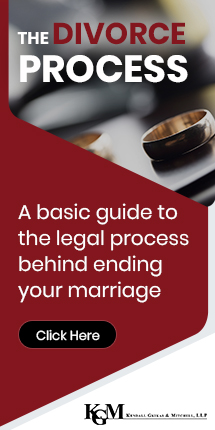 If you’re on your way to a divorce – or are in the middle of one – then you’re already aware of the difficulty. As you think about dividing your property, one of the things you’ll need to consider will be your taxes. Our clients frequently ask us for advice on this topics, which is why Kendall Gkikas & Mitchell is here to ask some of the most commonly asked questions about California divorce and taxes.
If you’re on your way to a divorce – or are in the middle of one – then you’re already aware of the difficulty. As you think about dividing your property, one of the things you’ll need to consider will be your taxes. Our clients frequently ask us for advice on this topics, which is why Kendall Gkikas & Mitchell is here to ask some of the most commonly asked questions about California divorce and taxes.
How do I determine my filing status?
The most basic thing you’ll need to do when you file your taxes is to figure out what your filing status should be. If your divorce was final by midnight on New Year’s Eve, then you can file separately from your ex. If you have custody of your children and you receive child support, then you may also qualify as the “head of household” for tax purposes.
However, if you’re not the parent with custody then you’ll need to file as single even if your divorce wasn’t finalized until the end of the year. It all comes down to what your filing status was at the end of the year.
Can I deduct alimony payments?
According to the IRS, you can deduct spousal support if you’re paying it. On the other hand, if you’re receiving alimony, then you must include it in your taxable income. In most situations, you will have to pay taxes on it so be sure to withhold taxes throughout the year. Remember that this information applies only to official alimony payments as set up in your divorce agreement – it doesn’t apply to cash you give to your former spouse, allowances to property, or any other form of payment.
Can I deduct child support payments?
Child support payments do not follow the same rules as alimony. They are not tax deductible, and the parent who gets them does not generally have to include them in their taxable income.
Who gets the dependency exemption?
This one can get complicated and is best suited for your accountant. However, generally speaking, the parent who has custody can claim their dependents on their tax return. That said, the parent who doesn’t have custody can claim one or more of their children if the parent who has custody signs a form giving them the option to do so.
Don’t get divorced without the right family law attorney
Taxes are complicated, there’s no way around it – and so are divorces. When you work with Kendall Gkikas & Mitchell, you’re working with a law firm that prioritizes what’s best for our clients. We will listen to your situation, understand your goals, and provide you with options on how to move forward. For more information, call us today at 909-482-1422 to set up an appointment.


